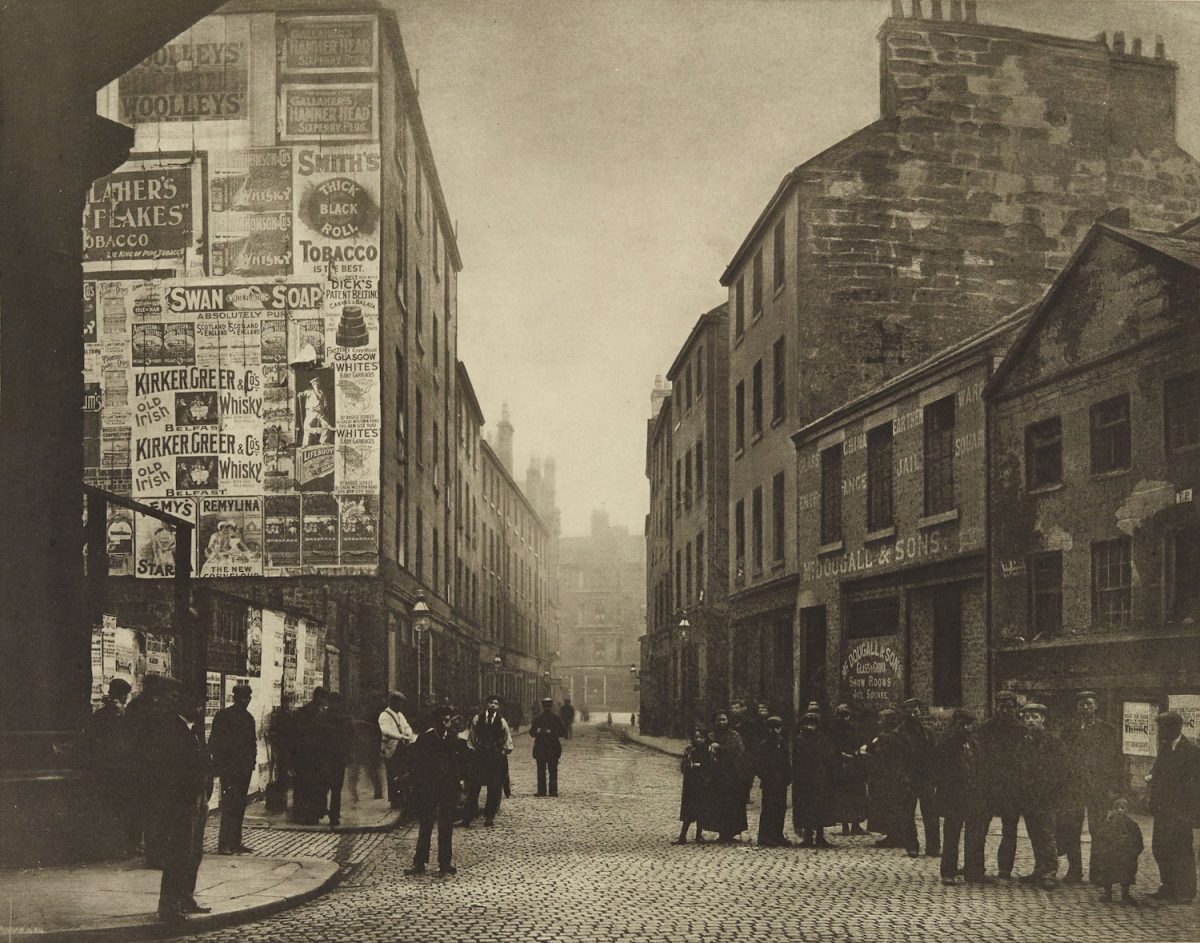Cicely Mary Hamilton, Modern Scotland as Seen by an Englishwoman, London: Dent and Sons, 1937, p. 30-32.
By courtesy of officials of the Public Health Department I was guided to one or two of Glasgow’s notoriously insanitary streets and introduced into several of their
By courtesy of officials of the Public Health Department I was guided to one or two of Glasgow’s notoriously insanitary streets and introduced into several of their
typical dwellings. All the tenants, when questioned, confessed cheerfully to bugs and, judging by the state of some of the woodwork, rats were no strangers to their domiciles. Needless to say, these prize specimens of Glasgow slumdom had been condemned by the sanitary
authority; their occupants, so soon as a clearance scheme was ready to receive them, would move to decent surroundings in the suburbs, and the evil-smelling tenements, left to their vermin, would fall to the pick of the housebreaker. In one domicile we visited, the pick of the
housebreaker was, already at work farther down the block that contained it; and the occupying family, packed and ready to depart, were only awaiting the arrival of the barrow which would convey their household goods to a new and more sanitary dwelling. Some of their household
goods—their bedding—had already been removed by a sanitary inspector; it would be restored, at the new and clean abode, after due disinfection against vermin. Bedding, however, is not the only means of transport for vermin; they can be conveyed from house to house in other
articles of furniture as well as in wearing apparel; hence it is the business of local health visitors to keep an eye on migrating families and urge them to special efforts in the way of watchfulness and cleanliness. The office of health visitor, in slum and slum-clearance
districts must be anything but a sinecure; it stands to reason that men and women who have dwelt for years, perhaps all their lives, in the squalid surroundings of a Glasgow rookery are likely to need persevering instruction in the arts of domestic cleanliness; and it says
much for the health visitor, as well as, for the average ex-slum family, that the authors of a report, issued on completion of Glasgow’s forty thousandth new house, are able to state that ‘the response to the improved environment and better accommodation has been
phenomenal, fully ninety per cent of the rehoused tenants in slum areas showing in every way a decided improvement.’ The ten per cent residuum, one concludes, must be borne with and, so far as possible, prevented from becoming a nuisance to their cleaner-living neighbours.
One little woman whom we called on in her slum would, I suspect, need a good deal of attention from the health visitor before she discarded the sluttish habits acquired in her years of squalor. She was a friendly little soul, with a sloping forehead and unwashed face, who, like
most of her fellow-slum-dwellers, seemed quite pleased to be called on; the mother of three grubby infants under school-age—one of them in arms, one old enough to stand and stare at us, one crawling on the unmade family bed where, in the unrestrained manner of infancy, it had
recently obeyed a call of nature. There were two more absent at school, the mother told us; these latter, presumably, being better clad and washed than their younger brethren—the education authority would see to that, providing at least the necessary footwear. A query with
regard to the husband and father brought the all too frequent reply that he was out of work; the income that he and his family obtained from the public purse being thirty-nine shillings a week. Whereby, as in other like-situated households, one glimpsed a problem affecting
more than Glasgow and Glasgow’s slums; the problem of the man of no particular skill who may find himself, when at length he gets a job, little, if at all, better off as to money than when he draws his dole in idleness. To the question: what inducement has such a man to work?
The answer is obviously that, as far as his finances are concerned, this inducement is nil.
-end-
-end-

 Read on Twitter
Read on Twitter


